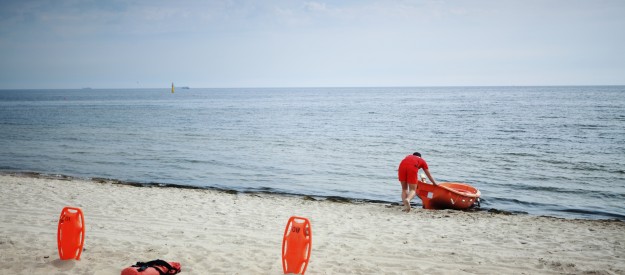"We are losing our attitude of wonder, of contemplation, of listening to creation and thus we no longer manage to interpret within it what Benedict XVI calls 'the rhythm of the love-story between God and man.'"
+ Pope Francis
The greatest service

“Know that the greatest service that man can offer to God is to help convert souls.”
This quote, attributed to St. Rose of Lima, is helpful for Catholic ecologists and for any Christian engaged in worldly affairs. With her feast day today, it seems only right to consider why this soul-saving message is so important—and why it may sound so scandalous to a world busy making things better.
Providentially, this is also the message of an editorial posted yesterday by Carl E. Olson at Catholic World Report. Carl writes that
[t]he Church, as Francis quipped this past June, is “not a well-organised NGO full of pastoral plans.” No, the Church is missionary and it carries out the mission of the Father, Son, and Holy Spirit—the “trinitarian mission” (see CCC, 257)—which is to communicate the divine life to mankind, so that we can, by God's grace, be true children of God.
Now, I know how easy it is to get distracted from this mission. The troubles of the world are legion. If we are not too heavily weighed down by them our response may be to throw everything we have into fixing all that is broken, as if this is in our power. For those of us concerned about of the dangers of man’s disordered relation with nature, we can embed ourselves so deeply in what’s wrong with the world that we can forget what Christ seeks of us first.
Which is?
For that, we look to the conclusion of Matthew’s Gospel.
Then Jesus approached and said to [His disciples], “All power in heaven and on earth has been given to me. Go, therefore, and make disciples of all nations, baptizing them in the name of the Father, and of the Son, and of the holy Spirit, teaching them to observe all that I have commanded you. And behold, I am with you always, until the end of the age.” (Matthew 28:18-20)
These words may offer unappealing answers to the great questions of many non-believers (and a few believers, too). Why do bad things happen if God is good and all-powerful? Why does suffering and injustice still flow through human history if Christ was victorious on the Cross? Why can’t people behave in ways that protect human dignity and the health of the planet’s ecosystems? And why, no matter how hard we try or how smart our solutions, can we not make things far better than they are?
Certainly, our efforts to achieve social justice are necessary. They are part of preaching and living the gospel of the Incarnate God. And so we must do as Christ has done—heal, help, feed, comfort, love. But Christ did not heal and feed everyone, nor can we expect to do so. But He did love and offer salvation to everyone. And so must we.
And therein lies the answer that we seek. Therein we find the solution to what ails us and disorders the world. Inviting others into a relationship with Christ means inviting them to receive His grace, especially that grace mediated by the one, holy, catholic, and apostolic church.
And it is only God’s grace that can elevate our fallen human natures.
It is only God’s grace that can properly arouse within us the virtues needed to live in accordance with the laws of God—which include the laws of nature.
It is only with God's grace that we can control our appetites and thus our consumption.
And it is only by the grace of God that we can know and live by this truth: If we want to save the planet we must fist set about saving souls.
St. Rose of Lima, pray for us.


















